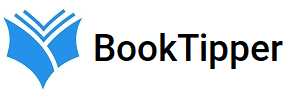Featured Mysteries & Thrillers

RETAIL GANGSTER
by Gary Weiss
A biography of the spectacular rise and fall of Eddie Antar, better known as “Crazy Eddie,” whose home electronics empire changed the world even as it turned out to be one of the biggest business scams of all time
Back in the fall of 2016 we heard the news about the passing of Eddie Antar, “Crazy Eddie” as he was known to millions of people, the man behind the successful chain of electronic stores and one of the most iconic ad campaigns in history. Few things evoke the New York of a particular era the way “Crazy Eddie! His prices are insaaaaane!” does. The journalist Herb Greenberg called his death the “end of an era” and that couldn’t be more true. What’s insane is that his story has never been told.
Before Enron, before Madoff, before The Wolf of Wall Street, Eddie Antar’s corruption was second to none. The difference was that it was a street franchise, a local place that was in the blood stream of everyone’s daily life in the 1970s and early ’80s. And Eddie pulled it off with a certain style, an in your face blue collar chutzpah. Despite the fact that then U.S. Attorney Michael Chertoffcalled him “the Darth Vader of capitalism” after the extent of the fraud was revealed, one of the largest SEC frauds in American history after Crazy Eddie’s stores went public in 1984, Eddie was talked about fondly by the people who worked for him. They still do–there are myriads of ex-Crazy Eddie employee web pages that still attract fans, and the Crazy Eddie fraud scheme is now taught in every business school across the United States.
Many years have passed since the franchise went down in spectacular fashion but Crazy Eddie’s moment has endured the way that iconic brands and characters do–one only need Google the media outpouring that accompanied his death. Maybe it’s because it crystallized everything about 1970s New York almost perfectly, the merchandise and rise of consumer electronics (stereos!), the ads (cheesy!), the money (cash!). In Retail Gangster, investigative journalist Gary Weiss takes readers behind the scenes of one of the most unbelievable business scam stories of all time, a story spanning continents and generations, reaffirming the old adage that the truth is often stranger than fiction.
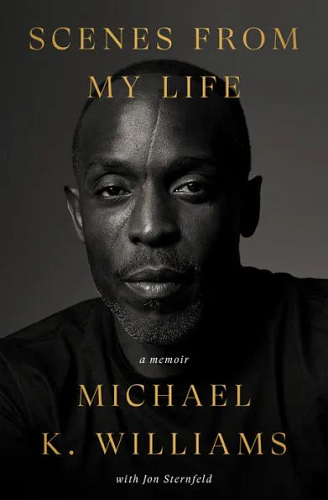
SCENES FROM MY LIFE
by Michael K. Williams
A moving, unflinching memoir of hard-won success, struggles with addiction, and a lifelong mission to give back—from the late iconic actor beloved for his roles in The Wire, Boardwalk Empire, and Lovecraft Country
When Michael K. Williams died on September 6, 2021, he left behind a career as one of the most electrifying actors of his generation. From his star turn as Omar Little in The Wire to Chalky White in Boardwalk Empire to Emmy-nominated roles in HBO’s The Night Of and Lovecraft Country, Williams inhabited a slew of indelible roles that he portrayed with a rawness and vulnerability that leapt off the screen. Beyond the nominations and acclaim, Williams played characters who connected, whose humanity couldn’t be denied, whose stories were too often left out of the main narrative.
At the time of his death, Williams had nearly finished a memoir that tells the story of his past while looking to the future, a book that merges his life and his life’s work. Mike, as his friends knew him, was so much more than an actor. In Scenes from My Life, he traces his life in whole, from his childhood in East Flatbush and his early years as a dancer to his battles with addiction and the bar fight that left his face with his distinguishing scar. He was a committed Brooklyn resident and activist who dedicated his life to working with social justice organizations and his community, especially in helping at-risk youth find their voice and carve out their future. Williams worked to keep the spotlight on those he fought for and with, whom he believed in with his whole heart.
Imbued with poignance and raw honesty, Scenes from My Life is the story of a performer who gave his all to everything he did—in his own voice, in his own words, as only he could.
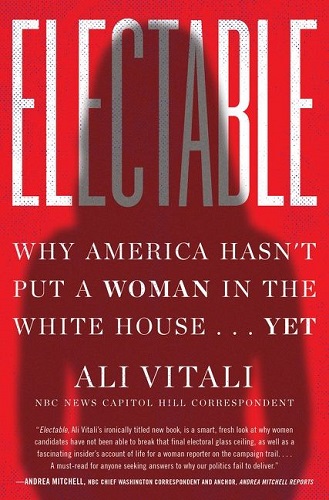
ELECTABLE
by Ali Vitali
A fearless deep dive into the 2020 election from former MSNBC “Road Warrior” and now NBC Capitol Hill correspondent Ali Vitali, who covered the campaign trail every step of the way—investigating the gendered double standards placed on women presidential candidates of that cycle and those who came before, and what it will take for a woman to finally break the glass ceiling and win the White House.
Opening with the moment when Joe Biden and Kamala Harris were finally declared the winners of the 2020 race—the long, drawn-out journey towards who would next inhabit the White House, and the resulting and disputed defeat of Donald Trump, Electable is a sweeping look at a lingering question from that Presidential race. Why, when we saw more women run for President of the United States than ever before in our history, did we still not cross that final hurdle?
Following the 2020 race minute by minute as the reporter embedded with Elizabeth Warren, Ali Vitali witnessed up-close the way that our most recent election was unique—not simply for the way in which the incumbent conducted himself, but for the ways in which the field, rich with Democrats from all kinds of backgrounds, was both modern but also more of the same. With more female candidates than ever before, this was a history-making race, and yet these women—most of them incredibly qualified with decades of public service on their resumes—dealt once again with a different level of scrutiny than their male counterparts. Woven throughout is close examination of the treatment of Hillary Clinton, Geraldine Ferraro, Shirley Chisholm, and those on the right as well. Grappling with ideas around the “likeability” and “electability” issues, as well as fundraising hurdles many female candidates face, Vitali asks the same questions she and so many have been grappling with for decades, but especially since Hillary Clinton’s devastating defeat in 2016: Why is it so hard for a woman to be taken seriously as a presidential contender? What will it take for men and women to be held to the same standard? What happens next?
Electable tackles these questions, with specific, behind-the-scenes, play-by-play detail.
Gabbard, Harris, Williamson, Gillibrand, Warren, Klobuchar…and then there were none.
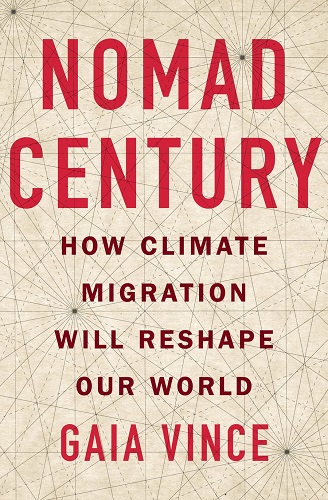
NOMAD CENTURY
by Gaia Vince
“The MOST IMPORTANT BOOK I imagine I’ll ever read.”―Mary Roach
FROM AN AWARD-WINNING SCIENCE JOURNALIST comes an urgent investigation of environmental migration―the most underreported, seismic consequence of our climate crisis that will force us to change where―and how―we live.
“An IMPORTANT and PROVOCATIVE start to a crucial conversation.” ―Bill McKibben
“We are facing a species emergency. We can survive, but to do so will require a planned and deliberate migration of a kind humanity has never before undertaken. This is the biggest human crisis you’ve never heard of.”
Drought-hit regions bleeding those for whom a rural life has become untenable. Coastlines diminishing year on year. Wildfires and hurricanes leaving widening swaths of destruction. The culprit, most of us accept, is climate change, but not enough of us are confronting one of its biggest, and most present, consequences: a total reshaping of the earth’s human geography. As Gaia Vince points out early in Nomad Century, global migration has doubled in the past decade, on track to see literal billions displaced in the coming decades. What exactly is happening, Vince asks? And how will this new great migration reshape us all?
In this deeply-reported clarion call, Vince draws on a career of environmental reporting and over two years of travel to the front lines of climate migration across the globe, to tell us how the changes already in play will transform our food, our cities, our politics, and much more. Her findings are answers we all need, now more than ever.
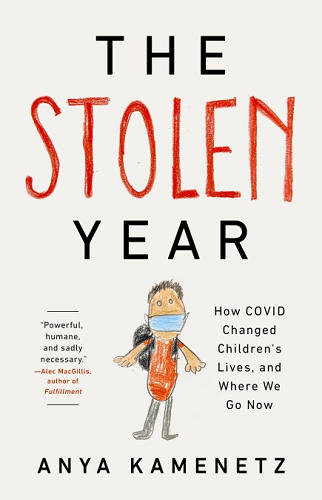
THE STOLEN YEAR
by Anya Kamenetz
An NPR education reporter shows how the pandemic disrupted children’s lives—and how our country has nearly always failed to put our children first
The onset of COVID broke a 150-year social contract between America and its children. Tens of millions of students lost what little support they had from the government—not just school but food, heat, and physical and emotional safety. The cost was enormous.
But this crisis began much earlier than 2020. In The Stolen Year, Anya Kamenetz exposes a long-running indifference to the plight of children and families in American life and calls for a reckoning.
She follows families across the country as they live through the pandemic, facing loss and resilience: a boy with autism in San Francisco who gains a foster brother and a Hispanic family in Texas that loses a member to COVID, and finds solace when they need it most. Kamenetz also recounts the history that brought us to this point: how we thrust children and caregivers into poverty, how we over-police families of color, how we rely on mothers instead of infrastructure. And how our government, in failing to support our children through this tumultuous time, has stolen years of their lives.
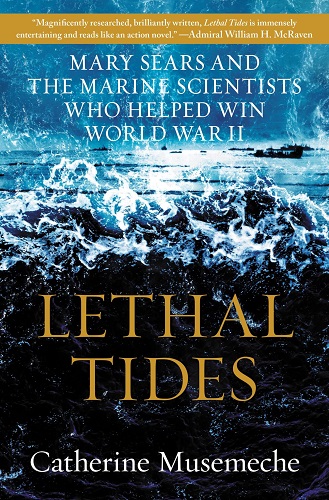
LETHAL TIDES
by Catherine Musemeche
“Magnificently researched, brilliantly written, Lethal Tides is immensely entertaining and reads like an action novel. Catherine Musemeche has brought to life the incredible work of the scientists and researchers who made such a remarkable contribution to America’s war effort in the Pacific theater during WWII.” —Admiral William H. McRaven (U.S. Navy, Ret.), #1 New York Times bestselling author of Make Your Bed and The Hero Code
Lethal Tides tells the story of the virtually unknown Mary Sears, “the first oceanographer of the Navy,” whose groundbreaking oceanographic research led the U.S. to victory in the Pacific theater during World War II.
In Lethal Tides, Catherine Musemeche weaves together science, biography, and military history in the compelling story of an unsung woman who had a dramatic effect on the U.S. Navy’s success against Japan in WWII, creating an intelligence-gathering juggernaut based on the new science of oceanography.
When World War II began, the U.S. Navy was unprepared to enact its island-hopping strategy to reach Japan. Anticipating tides, planning for coral reefs, and preparing for enemy fire was new ground for them, and with lives at stake it was ground that had to be covered quickly. Mary Sears, a marine biologist, was the untapped talent they turned to, and she along with a team of quirky marine scientists were instrumental in turning the tide of the war in the United States’ favor.
The Sears team analyzed ocean currents, made wave and tide predictions, identified zones of bioluminescence, mapped deep-water levels where submarines could hide and gathered information about the topography and surf conditions surrounding the Pacific islands and Japan. Sears was frequently called upon to make middle-of-the-night calculations for last-minute top-secret landing destinations and boldly predicted optimal landing times and locations for amphibious invasions.
In supplying these crucial details, Sears and her team played a major role in averting catastrophes that plagued earlier amphibious landings, like the disastrous Tarawa, and cleared a path to Okinawa, the last major battle of World War II.

HITLER'S GIRL
by Lauren Young
A timely, riveting book that presents for the first time an alternative history of 1930s Britain, revealing how prominent fascist sympathizers nearly succeeded in overturning British democracy—using the past as a road map to navigate the complexities of today’s turn toward authoritarianism.
Hitler’s Girl is a groundbreaking history that reveals how, in the 1930s, authoritarianism nearly took hold in Great Britain as it did in Italy and Germany. Drawing on recently declassified intelligence files, Lauren Young details the pervasiveness of Nazi sympathies among the British aristocracy, as significant factions of the upper class methodically pursued an actively pro-German agenda. She reveals how these aristocrats formed a murky Fifth Column to Nazi Germany, which depended on the complacence and complicity of the English to topple its proud and long-standing democratic tradition—and very nearly succeeded.
As she highlights the parallels to our similarly treacherous time, Young exposes the involvement of secret organizations like the Right Club, which counted the Duke of Wellington among its influential members; the Cliveden Set, which ran a shadow foreign policy in support of Hitler; and the shocking four-year affair between socialite Unity Mitford and Adolf Hitler.
Eye-opening and instructive, Hitler’s Girl re-evaluates 1930s England to help us understand our own vulnerabilities and poses urgent questions we must face to protect our freedom. At what point does complacency become complicity, posing real risk to the democratic norms that we take for granted? Will democracy again succeed—and will it require a similarly cataclysmic event like World War II to ensure its survival? Will we, in our own defining moment, stand up for democratic values—or will we succumb to political extremism?
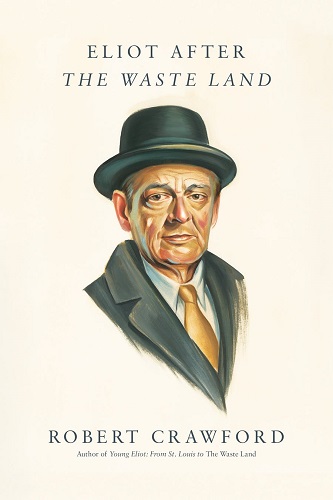
ELIOT AFTER THE WASTELAND
by Robert Crawford
Young Eliot: From St. Louis to “The Waste Land” was hailed as “exceptional” and “assiduous” (The New York Times). Robert Crawford’s meticulous, incisive scholarship continues in Eliot After “The Waste Land”, an invaluable record of the revolutionary modernist, visionary poet, and troubled man.
After being kept from the public for more than fifty years, the letters between T. S. Eliot and his longtime love and muse Emily Hale were unsealed in 2020. Drawing on these intimate exchanges and on countless interviews and archives, as well as on Eliot’s own poetry and prose, the award-winning biographer Robert Crawford completes the narrative he began in Young Eliot. Eliot After “The Waste Land”, the long-awaited second volume of Crawford’s magisterial, meticulous portrait of the twentieth century’s most significant poet, tells the story of the mature Eliot during his years as a world-renowned writer and intellectual, including his complex interior life.
Chronicling Eliot’s time as an exhausted bank employee after the publication of The Waste Land through the emotional turmoil of the 1920s and 1930s and his years as a firewatcher in bombed wartime London, Crawford shows us the public and personal experiences that helped inspire Eliot’s later masterpieces. Crawford describes the poet’s conversion to Anglo-Catholicism, his separation from Vivien Haigh-Wood and his happy second marriage to Valerie Fletcher, his editorship at Faber and Faber, his Nobel Prize, his great work Four Quartets, and his adventures in the theater.
Crawford presents this complex and remarkable man not as a literary monument but as a human being: as husband, lover, and widower; as banker, editor, playwright, and publisher; and most of all as an epoch-shaping poet struggling to make art amid personal disasters.

THIS MUCH IS TRUE
by Miriam Margolyes
‘There is no one on earth quite so wonderful’ STEPHEN FRY
BAFTA-winning actor, voice of everything from Monkey to the Cadbury’s Caramel Rabbit, creator of a myriad of unforgettable characters from Lady Whiteadder to Professor Sprout, MIRIAM MARGOLYES, OBE, is the nation’s favourite (and naughtiest) treasure. Now, at the age of 80, she has finally decided to tell her extraordinary life story – and it’s well worth the wait.
Find out how being conceived in an air-raid gave her curly hair; what pranks led to her being known as the naughtiest girl Oxford High School ever had; how she ended up posing nude for Augustus John as a teenager; why Bob Monkhouse was the best (male) kiss she’s ever had; and what happened next after Warren Beatty asked ‘Do you fuck?’
From declaring her love to Vanessa Redgrave to being told to be quiet by the Queen, this book is packed with brilliant, hilarious stories. With a cast list stretching from Scorsese to Streisand, a cross-dressing Leonardo di Caprio to Isaiah Berlin, This Much Is True is as warm and honest, as full of life and surprises, as its inimitable author.
Still Hot in Non-Fiction & Biography

THINK AGAIN
by Adam Grant
#1 New York Times Bestseller
“THIS. This is the right book for right now. Yes, learning requires focus. But, unlearning and relearning requires much more—it requires choosing courage over comfort. In Think Again, Adam Grant weaves together research and storytelling to help us build the intellectual and emotional muscle we need to stay curious enough about the world to actually change it. I’ve never felt so hopeful about what I don’t know.”
—Brené Brown, Ph.D., #1 New York Times bestselling author of Dare to Lead
The bestselling author of Give and Take and Originals examines the critical art of rethinking: learning to question your opinions and open other people’s minds, which can position you for excellence at work and wisdom in life
Intelligence is usually seen as the ability to think and learn, but in a rapidly changing world, there’s another set of cognitive skills that might matter more: the ability to rethink and unlearn. In our daily lives, too many of us favor the comfort of conviction over the discomfort of doubt. We listen to opinions that make us feel good, instead of ideas that make us think hard. We see disagreement as a threat to our egos, rather than an opportunity to learn. We surround ourselves with people who agree with our conclusions, when we should be gravitating toward those who challenge our thought process. The result is that our beliefs get brittle long before our bones. We think too much like preachers defending our sacred beliefs, prosecutors proving the other side wrong, and politicians campaigning for approval–and too little like scientists searching for truth. Intelligence is no cure, and it can even be a curse: being good at thinking can make us worse at rethinking. The brighter we are, the blinder to our own limitations we can become.
Organizational psychologist Adam Grant is an expert on opening other people’s minds–and our own. As Wharton’s top-rated professor and the bestselling author of Originals and Give and Take, he makes it one of his guiding principles to argue like he’s right but listen like he’s wrong. With bold ideas and rigorous evidence, he investigates how we can embrace the joy of being wrong, bring nuance to charged conversations, and build schools, workplaces, and communities of lifelong learners. You’ll learn how an international debate champion wins arguments, a Black musician persuades white supremacists to abandon hate, a vaccine whisperer convinces concerned parents to immunize their children, and Adam has coaxed Yankees fans to root for the Red Sox. Think Again reveals that we don’t have to believe everything we think or internalize everything we feel. It’s an invitation to let go of views that are no longer serving us well and prize mental flexibility over foolish consistency. If knowledge is power, knowing what we don’t know is wisdom.

RIVER OF THE GODS
by Candice Millard
NEW YORK TIMES BESTSELLER • The harrowing story of one of the great feats of exploration of all time and its complicated legacy—from the New York Times bestselling author of The River of Doubt and Destiny of the Republic
For millennia the location of the Nile River’s headwaters was shrouded in mystery. In the 19th century, there was a frenzy of interest in ancient Egypt. At the same time, European powers sent off waves of explorations intended to map the unknown corners of the globe – and extend their colonial empires.
Richard Burton and John Hanning Speke were sent by the Royal Geographical Society to claim the prize for England. Burton spoke twenty-nine languages, and was a decorated soldier. He was also mercurial, subtle, and an iconoclastic atheist. Speke was a young aristocrat and Army officer determined to make his mark, passionate about hunting, Burton’s opposite in temperament and beliefs.
From the start the two men clashed. They would endure tremendous hardships, illness, and constant setbacks. Two years in, deep in the African interior, Burton became too sick to press on, but Speke did, and claimed he found the source in a great lake that he christened Lake Victoria. When they returned to England, Speke rushed to take credit, disparaging Burton. Burton disputed his claim, and Speke launched another expedition to Africa to prove it. The two became venomous enemies, with the public siding with the more charismatic Burton, to Speke’s great envy. The day before they were to publicly debate,Speke shot himself.
Yet there was a third man on both expeditions, his name obscured by imperial annals, whose exploits were even more extraordinary. This was Sidi Mubarak Bombay, who was enslaved and shipped from his home village in East Africa to India. When the man who purchased him died, he made his way into the local Sultan’s army, and eventually traveled back to Africa, where he used his resourcefulness, linguistic prowess and raw courage to forge a living as a guide. Without Bombay and men like him, who led, carried, and protected the expedition, neither Englishman would have come close to the headwaters of the Nile, or perhaps even survived.
In River of the Gods Candice Millard has written another peerless story of courage and adventure, set against the backdrop of the race to exploit Africa by the colonial powers.
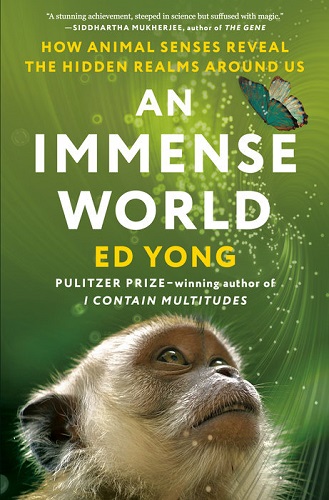
AN IMMENSE WORLD
by Ed Yong
NEW YORK TIMES BESTSELLER • Every kind of animal, including humans, is enclosed within its own unique sensory bubble, perceiving but a tiny sliver of our immense world. Pulitzer Prize–winning science journalist Ed Yong takes us on “a thrilling tour of nonhuman perception” (The New York Times), allowing us to experience the skeins of scent, waves of electromagnetism, and pulses of pressure that other animals perceive.
“One of this year’s finest works of narrative nonfiction . . . Yong’s reporting is layered, seasoned with vivid scenes from laboratories and in the field, interviews with researchers across a spectrum of disciplines.”—Oprah Daily
“A dazzling ride through the sensory world of astoundingly sophisticated creatures.”—The Wall Street Journal
The Earth teems with sights and textures, sounds and vibrations, smells and tastes, electric and magnetic fields. In An Immense World, Ed Yong coaxes us beyond the confines of our own senses to encounter beetles that are drawn to fires, turtles that can track the Earth’s magnetic fields, fish that fill rivers with electrical messages, and even humans who wield sonar like bats. We discover that a crocodile’s scaly face is as sensitive as a lover’s fingertips, that the eyes of a giant squid evolved to see sparkling whales, that plants thrum with the inaudible songs of courting bugs, and that even simple scallops have complex vision. We learn what bees see in flowers, what songbirds hear in their tunes, and what dogs smell on the street. We listen to stories of pivotal discoveries in the field, while looking ahead at the many mysteries that remain unsolved.
Funny, rigorous, and suffused with the joy of discovery, An Immense World takes us on what Marcel Proust called “the only true voyage . . . not to visit strange lands, but to possess other eyes.”
